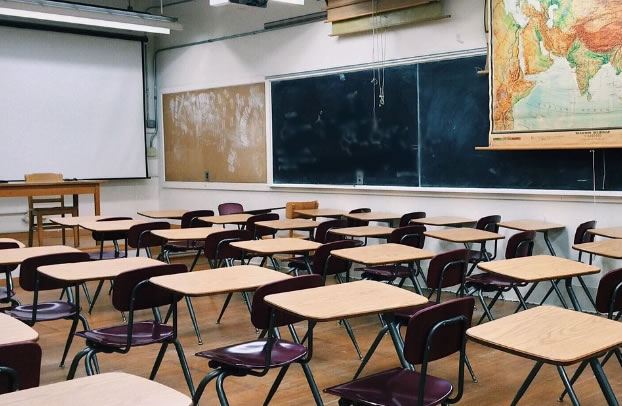Ealing Primary Schools Say They Are Not Ready to Open
MPs say government should not 'blindly' push ahead unless safety guaranteed

May 28, 2020
Dozens of primary schools have written to Ealing Council asking it to advise against sending more pupils back to school until they think it is safe to do so.
Secondary schools, special education schools and 25 primary schools so far have joined in calls to push back the reopening of classrooms starting with Reception, Year 1 and Year 6 children as the government expects pupils to be phased back into school from June 1.
But the National Education Union is urging for its five tests to be met before schools reopen, including ensuring a low number of coronavirus cases, a national plan for social distancing, protection for vulnerable staff and students’ families and regular testing for those within schools.
National Education Union Ealing district secretary, Stefan Simms, said a survey of local members found 70 per cent wanted to return to classrooms from June 15 at the earliest.
“Our members will not put lives at risk,” he said.
“We will go back when it is safe to do so and the Government needs to do more because we want to go back.”
The letter sent by schools said: “We ask that Ealing LA [local authority] issues advice to all its schools not to increase the number of pupils attending until the principles and tests set out and agreed by the joint education unions is adopted by the Government.”
In Ealing, concerns for coronavirus spreading to vulnerable family members living in multi-generational households has also been highlighted as a risk if children return to school.
A public meeting was held on Tuesday, May 26, with Ealing North MP James Murray, Mr Simms and a headteacher talking about why it is not safe to go back to schools.
Mr Murray said in a joint statement with Ealing Southall MP, Virendra Sharma, and Ealing Central and Acton MP Rupa Huq, that the Government must not “blindly” push ahead with a plan that does not guarantee safety.
The MPs said: “Like many teaching staff, parents, union representatives, and governors in Ealing, we are deeply concerned by government plans to reopen schools for more pupils on June 1.
“Whilst everyone wants schools to be open for more pupils as soon as possible, the government should be working with the sector to get this right in the best interests of children, families, and staff. We urge the government to work with trade unions, parents, and the sector to create clear and stringent safety conditions that must be met before schools reopen.”
Mr Simms had accused Ealing Council of “ignoring” teachers in the borough by not issuing advice against reopening, but in a statement, council leader Julian Bell said Ealing’s schools should only open “when they are ready to do so”.
“Our advice to schools continues to be that they shouldn’t reopen to meet an arbitrary deadline,” he said.
“We have been having productive conversations with schools about phased return of these year groups during the first few weeks of June. We don’t expect the majority of our schools to return before June 15.”
The borough chief said schools’ headteachers and governors know best about what measures will be needed to reopen safely, and the needs of their pupils and staff.
He also assured parents they will not be fined if they choose not to send their children back to school at this time and all parents will receive a letter from the council outlining its approach.
Cllr Bell added, “As the prime minister announced the easing of lockdown, we were told that the Government’s track and trace system would soon be operational. It has yet to be rolled out, which compounds the difficulty in opening schools quickly. Track and trace information must be shared with councils and schools so we can act quickly to contain an outbreak if a pupil or member of staff gets Covid-19.
“We all want children and young people back into education. It is the best place for them to learn and it is good for their mental well-being, general health and social skills.
“To combat inequality, it is even more important that children from less advantaged households who may not have access to computers and restricted home learning go back to school as soon as it is safe to do so.”
Anahita Hossein-Pour - Local Democracy Reporter